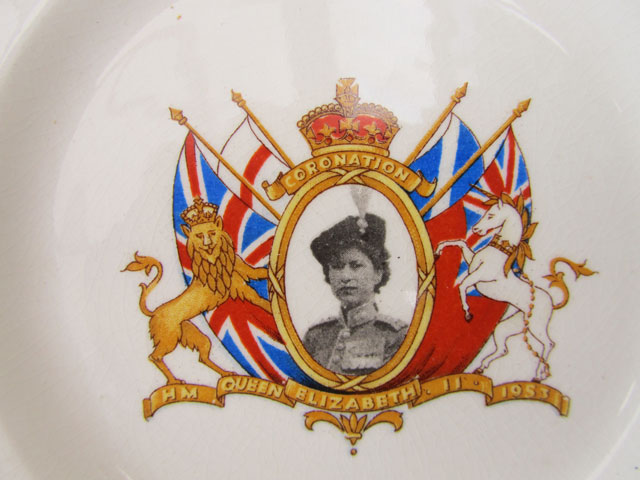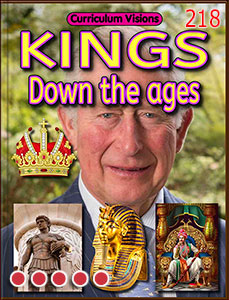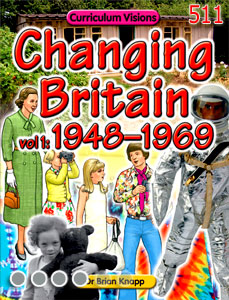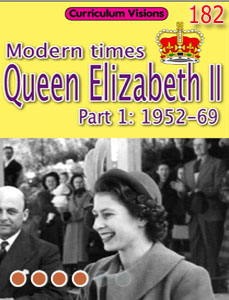Coronation

A piece of china commemorating the coronation of Queen Elizabeth II.
Coronations occur when a new monarch (king or queen) replaces a previous one through a formal crowning ceremony. Coronation means 'putting on the crown'. Traditionally these have been splendid affairs, designed to show the power of the monarch, and give an opportunity for the lords in particular to show their allegiance to the monarch in public.
The coronation of Elizabeth II was in 1953, nearly a year after Elizabeth had taken over from her father. It all took time to arrange, and it was in a time when Britain was still recovering from the war. So this coronation was different. It might have been a rainy day, but it was still exciting for millions. It was the first (and so far only) British coronation to be on TV, and so many TVs were bought just to watch the coronation, that it hastened in the TV age.
But this coronation wasn't about power. By now we were in an age after empire, so it was more about providing a picture of a young queen that everyone could relate to. In an age of rapid change (just as it is today) many people think it is important to have a royal family as a sign that some things at least can continue.
The coronation of King Charles III happened in a world that was very different. The passing of Queen Elizabeth II was expected and planned for. But 2023 was also a time when many people were feeling that it was (once again) hard to make ends meet. Also all of the old pomp and ceremony seemed to many people to be out of date. And it would have cost a fortune to put on. On the other hand, an event like a coronation is a major draw for tourists from all over the world. As a result the coronation of King Charles and Queen Camilla still had the traditional feel, but was a much scaled down affair. It also contained many opportunities for people of other faiths to be involved.






